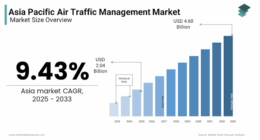No Abnormal Trends Detected
On June 16, 2025, Thailand’s Finance Ministry refuted claims that a rising number of pico-finance operators are returning their licences due to mounting non-performing loans. Fiscal Policy Office director-general Pornchai Thiraveja dismissed these reports as misleading, asserting that licence surrenders remain within normal limits, with no significant uptick observed in the sector.
Stable Non-Performing Loan Rates
NPLs Slightly Decline
The ministry reported that the non-performing loan rate for pico-finance businesses stood at 23.4% of outstanding loans as of March 2025, a marginal decrease from 23.6% the previous year. This stability counters suggestions of a crisis driving operators to exit the market. Pico-finance, launched in 2017, provides microloans to underserved communities, capping interest rates at 36% annually to reflect higher risk.
Pico-Finance’s Role in Inclusion
Reducing Informal Lending
Introduced to enhance financial access, the pico-finance scheme targets individuals unable to secure loans from traditional banks. By offering fair-rate microloans, it aims to curb reliance on unregulated lenders. The program also encourages informal lenders to transition into the formal financial system, fostering a more transparent and regulated lending environment across Thailand’s provinces.
Robust Operator Network
Growth in Licensed Providers
As of May 2025, 1,155 pico-finance operators were active across 75 provinces, excluding Sing Buri and Ang Thong. Since 2017, only 106 of over 1,000 operators have returned their licences, primarily due to pandemic-related economic challenges and staffing issues. New licence applications consistently outpace returns, signaling sustained interest and growth in the pico-finance sector.
Loan Activity Snapshot
Strong Demand Persists
By March 31, 2025, pico-finance operators had issued 5.08 million loan accounts worth 50 billion baht, with 393,010 accounts and 7.43 billion baht outstanding. From January to March, approximately 55,500 new loans were approved monthly, averaging 700 million baht in value. These figures highlight the scheme’s vital role in meeting credit needs for underserved populations.
Proposed Regulatory Updates
Expanding Service Reach
The Finance Ministry is exploring regulatory changes to allow pico-finance operators to extend services to neighboring provinces beyond their headquarters’ locations. This expansion would enhance access to affordable loans while improving oversight of the sector. By adapting regulations, the ministry aims to strengthen pico-finance’s impact, ensuring it continues to serve as a cornerstone of financial inclusion in Thailand.
Ongoing Sector Oversight
FPO Maintains Vigilance
The Fiscal Policy Office remains committed to monitoring pico-finance operations, ensuring compliance and addressing challenges like economic slowdowns or staffing shortages. With a steady influx of new operators and manageable NPL rates, the ministry views the sector as resilient. These efforts underscore Thailand’s dedication to fostering a sustainable microfinance ecosystem that supports economic empowerment and regulatory stability.









